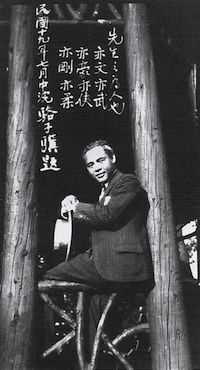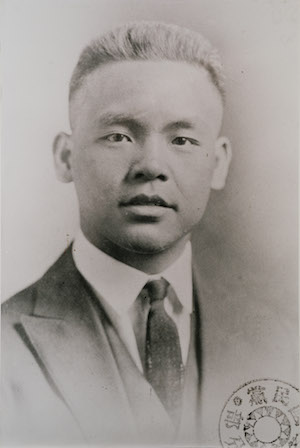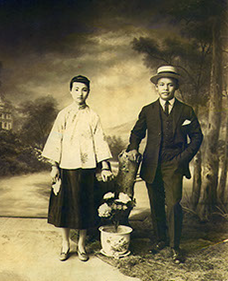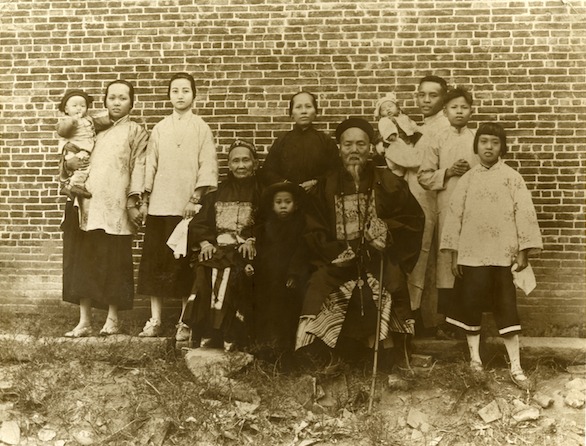Early History

Young Frank Fat
Frank Fat, born Dong Sai-Fat in a tiny village outside Canton China in 1904, arrived in Sacramento in 1919, at the age of 16 . In the tradition of many 'wah que' (overseas Chinese) during this time of the Chinese Exclusion Act he was a '
paper son' his family having raised the equivalent of a thousand dollars to purchase false immigration papers, he assumed the identity of a family member of a previous immigrant, Wong Bing Yuen. Like many other 'paper sons,' he came to the US seeking his fortune in Gold Mountain, planning a prosperous return, an eligible match with a bride and a bright future in California. After two months on
Angel Island, the notorious immigration station in San Francisco Bay, Frank went to live with an uncle, Dong Haw, at the Hong King Lum Restaurant. To earn the money to pay his immigration debt and find a bride, he washed dishes at the Sutter Club, picked fruit in Isleton and Walnut Grove, worked in a laundry and spent time in Cincinnati and other Midwestern cities working in restaurants and perfecting his English.

Frank Fat (close-up) with a seal
printed on the lower right corner.
Eight years later, after paying off their immigration debts, Frank and his friend George Hong Quan booked passage for home to meet and marry the brides previously arranged by a matchmaker. He and his five friends were returning as "cavalier, worldly, eligible and desireable bachelors.” (
Choy, 2007) The journey to meet the new brides was almost a catastrophe when the young men, stopping in Yokahama, spent all of their money---except for George---who saved his money and his friends from being stranded, thereby earning a reputation for thrift which would serve him well in the years to come.
His new wife, Yee Lai Ching—known as Mary—was from a wealthy merchant family, and after the birth of their first son, Kai, they left a life of relative luxury to join Frank in the United States. After spending two months on Angel Island, her release was expedited by family connections, Mary began working in a cannery to help support the family.

Frank and Mary Fat
in front of a canvas. (1926)
Frank’s lucky break occurred in the 1930s when he waited tables in the basement of Hong King Lum restaurant where they offered Chinese Keno games when gambling was still legal in California. A prestigious state official came in for lunch and bought several Keno tickets. He marked the tickets, and Frank went to the basement to pay for them. A 50-cent ticket won $900 for the patron, but the official left before the game started. Frank held the winnings until the man came back for dinner. The thankful customer rewarded Frank for his honesty by giving him the business loan he needed to open
Frank Fat’s.
In 1939, Frank and two friends bought a former Italian Restaurant and speakeasy bar at 806 L Street. The Frank Fat culinary legend was born. Because of the proximity to the State Capitol, Frank Fat’s restaurant became a favorite location where important legislative business was brokered over lunch and dinner. Through his restaurant, Frank got to know every governor who occupied the State Capitol.

Family photograph. Frank, Mary and Baby Wing pose in 1926 China with Frank's parents and family.
May is third from the left; Frank, holding baby Wing, is third from the right.






